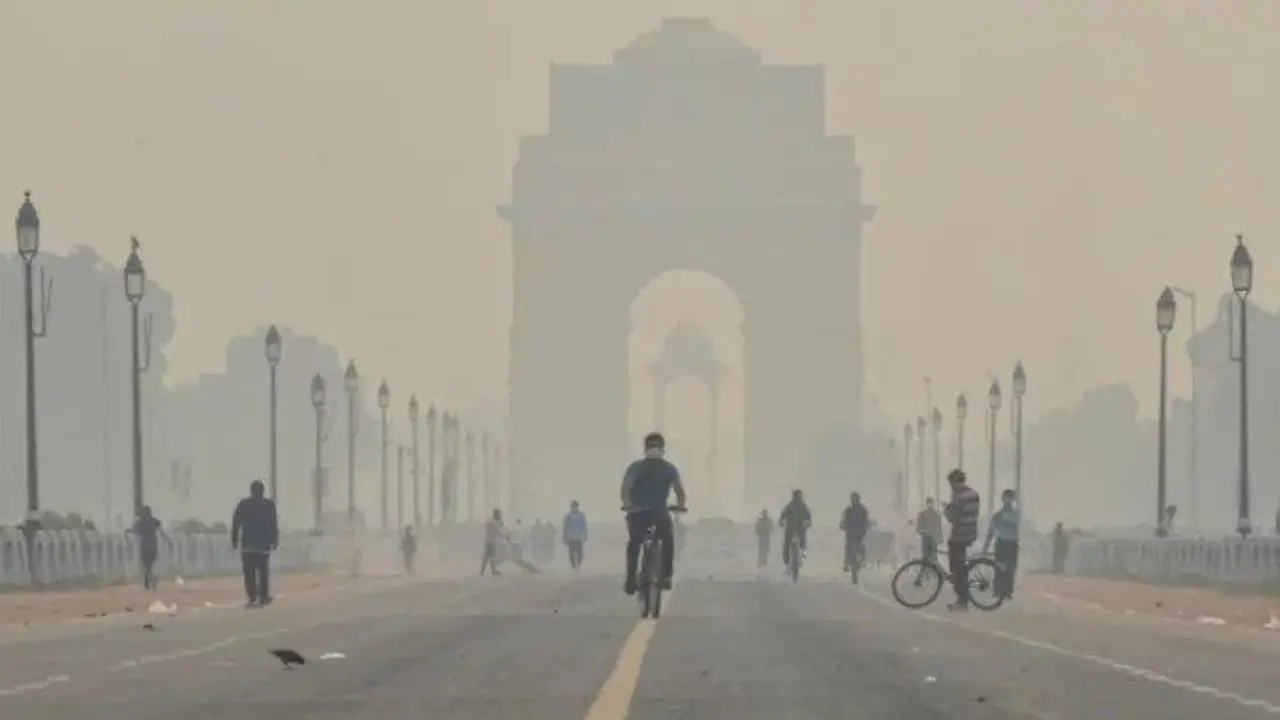Updated 4 October 2024 at 00:00 IST
Study Shows Fixing Civic Issues Can Reduce Urban Pollution
A study by IIT Delhi shows that addressing civic issues like unpaved roads and garbage burning can lower PM2.5 pollution levels in urban areas.
- India News
- 3 min read

A new study conducted by IIT Delhi reveals that fixing civic issues like unpaved roads, garbage burning, and broken footpaths can help lower PM2.5 levels and reduce pollution in urban areas. PM2.5 are fine inhalable particles, with diameters that are generally 2.5 micrometers or smaller, and they are the greatest risk to health. The acceptable annual standard for PM2.5 is 40 micrograms per cubic meter.
The study, titled "The Impact of the Dispersed Sources Program on Local Air Quality," showcased an average 15 percent reduction in PM2.5 levels. Focusing on three key areas—Jahangirpuri, Rohini, and Karol Bagh—the study was conducted between July 2023 and March 2024, with portable low-cost sensors (PLCS) deployed to track local air quality.
The study highlighted that simple interventions like managing unpaved roads, reducing construction waste, addressing garbage burning, and repairing broken footpaths played a role in reducing pollution. PM2.5 levels dropped by 26.6 percent in Jahangirpuri, 15.7 percent in Rohini, and 15.3 percent in Karol Bagh, data from the IIT Delhi study showed.
To provide accurate data, the study used a combination of government air quality monitoring stations (CAAQMS) and combined readings from PLCS devices, said Professor Sagnik Dey from IIT Delhi’s Centre for Atmospheric Sciences, who led the study. A "difference of difference" methodology was applied to compare air quality in areas directly impacted by the interventions versus those without such measures, Dey said. The study highlights the efficacy of localized action in curbing air pollution.
Advertisement
"Our results show that community-level initiatives can lead to substantial and sustained improvements in air quality," Dey said. The initiative is part of the Dispersed Sources Programme (DSP), under the guidance of the Commission for Air Quality Management (CAQM-NCR), with 12 urban local bodies participating.
Tariq Thomas, Additional Commissioner of the Municipal Corporation of Delhi (MCD), who was the chief guest at the event unveiling the study, praised the collaborative efforts between MCD and IIT Delhi during the event. "This initiative represents a major step in our efforts to improve air quality in densely populated urban areas of Delhi. The findings show that small but strategic interventions can make a big impact," Thomas said.
Advertisement
The research team deployed 35 sensors across three key areas—Jahangirpuri, Rohini, and Karol Bagh—which were carefully calibrated to ensure accuracy, using the U.S. Embassy’s air quality monitoring system as a benchmark, the study found. It focused on resolving 65 long-term civic issues near the sensor locations to measure the impact on local air quality, the study said.
The program, run in partnership with urban local bodies, aims to resolve both short-term issues like garbage dumping and long-term issues such as potholes and broken footpaths, which are major contributors to pollution, it added.
Published By : Garvit Parashar
Published On: 4 October 2024 at 00:00 IST
